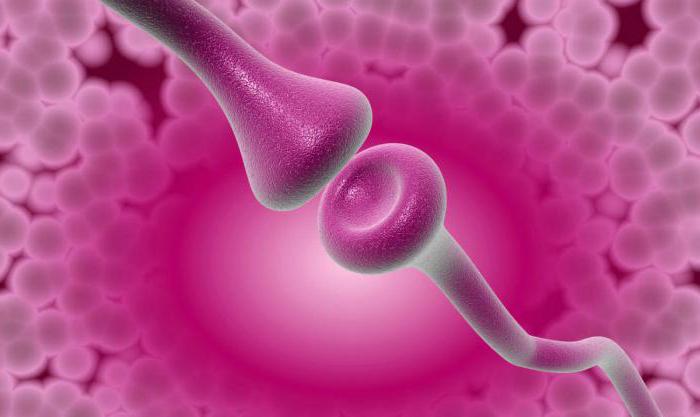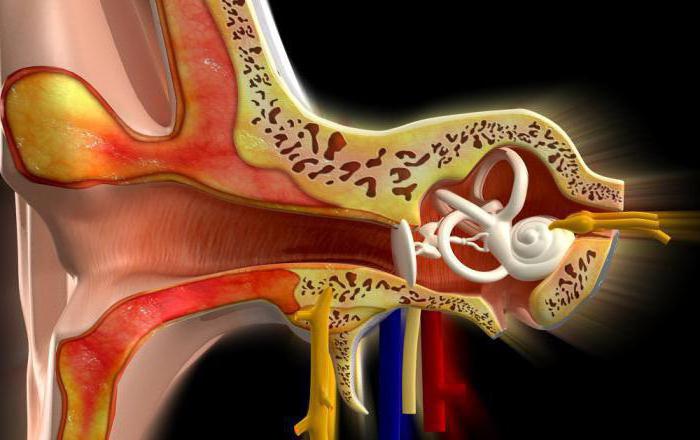The study of the vestibular apparatus: how it is conducted, the indications, the essence of the procedure
The vestibular apparatus is part of a complexmechanism, providing a person with balance and coordination of movements. It continuously interacts with the skin, the visual and nervous system. Investigation of the vestibular apparatus is required in those cases when a malfunction occurs in their coordinated work, as a result of which a person loses his balance and ceases to orient himself in space.

Vestibular apparatus: concept
The organ is a complex system, the development of which is completed by 12-15 years. It is part of the inner ear.
Thanks to the work of the vestibular apparatus, a personEasily orientates in space and keeps the body balanced even with eyes closed. When trying to make any movement, the receptors of the system are instantly irritated, sending an impulse to the brain and muscle tissue. At the same time, the image is fixed on the retina. Due to this, the body can take any pose and keep it for a long time.
Like any other body system, the bodyequilibrium is extremely vulnerable. At the first signs of any disturbance of the vestibular apparatus, it is required to consult the therapist or the otorhinolaryngologist immediately.

Causes of the disorder
Failure of the normal functioning of the body canbe due to the development of certain diseases or the taking of certain medications. Often violations of the vestibular apparatus appear as the body ages.
The most common causes of the disorder are:
- Positional dizziness. Occurs when the head rises or turnsto the side. By nature it is strong, but short. Dizziness appears due to a disruption in the structure of the receptors. Because of this, incorrect information about the position of the body is sent to the brain. The causes of this condition can be head injuries, diseases of the nervous system, aging.
- Infarct of the labyrinth (one of the structures of the inner ear). As a rule, it occurs in elderly patients. In young people appears due to the progression of vascular diseases. Accompanied by sudden loss of hearing and coordination of movements.
- Vestibular neuronitis. The cause is the herpes virus. The peak incidence falls on the autumn-spring period.
- Labyrinth. Violation of one of the structures of the inner ear is caused by the vital activity of viruses and bacteria.
- Ménière's disease. Pulmonary disease of the ear. It is characterized by damage and subsequent regeneration of the labyrinth.
- Disease of "unloading". For example, due to a long time in a moving vehicle, a person involuntarily swayed after leaving it.
- Other reasons: migraine, diseases of the nervous system and the musculoskeletal system.

Symptoms
Investigation of the vestibular apparatus should be carried out with the appearance of the following signs of its violation:
- frequent dizziness;
- sudden loss of balance or a feeling of possible falling;
- weakness;
- deterioration of vision;
- loss of orientation in space;
- anxiety, panic-stricken;
- nausea, vomiting;
- increased heart rate;
- Complexity when trying to concentrate attention.
Often a failure in the system is accompanied by impaired gastrointestinal tract.
Indications
The study of the function of the vestibular apparatus is prescribed when:
- frequent attacks of dizziness accompanied by hearing impairment;
- reduction of reflex reactions;
- the presence of neoplasm in the brain;
- craniocerebral trauma;
- encephalitis;
- meningitis;
- Multiple sclerosis;
- degenerative damages of the nervous system.
In addition, it is required to study the function of the vestibular apparatus for the VVC (military medical commission) and when entering the work, which is associated with increased loads on the equilibrium organ.

Contraindications
Examination is prohibited in the following cases:
- acute period of head trauma;
- in the presence of serious cardiovascular pathologies;
- increased intracranial pressure.
Diagnostics
An important point before the investigation of the functionthe vestibular apparatus is the collection of anamnesis. With its help, assumptions are made about the cause of the disorder and the most appropriate method of examination is selected.
The doctor pays special attention to the following:
- when there were symptoms, their frequency and duration;
- character of the signs, the sequence of their occurrence;
- whether there are hearing impairments.
Based on the history of the expert assigns the most gentle method of testing. By his decision, the patient can be redirected to other doctors.

To date, there are many methods to study the vestibular apparatus. The most common are:
- Trial for spontaneous nystagmus (involuntary contractions of the eye muscles). The presence of this symptom is defined as follows: the patient sits on a chair and fixes his gaze on the index finger of the medical worker, located about 30 cm from the patient. The researcher starts to move his finger in different directions. When you move your eyes, nystagmus may appear. It has three degrees: weak, medium and strong.
- Investigation of positional nystagmus. It occurs due to circulatory disordersand with certain diseases of the cervical region. To reveal positional nystagmus, the patient's head is given a position that worsens the blood flow in the arteries of the spine, and, consequently, in the ear maze.
- Romberg's test. The patient rises to his feet and brings them together. After that, he must stretch his arms forward and close his eyes. Dysfunction of the vestibular apparatus is manifested by the patient's swinging or falling.
- Indicative Sample. The patient closes his eyes, after which he is offered to touch his finger to the tip of the nose. If coordination of movements is not done, he will not be able to do this.
- Test with a letter. The patient is seated at the table, given paper and a pen. Then he needs to write a few numbers from top to bottom and from left to right. After that, all actions are repeated, but already with your eyes closed. The result depends on the angle of deviation of the written numbers from the horizontal and vertical lines.
- Rotational test. The patient sits in the chair of Barani and closes his eyes. After this, the chair starts to rotate. If the function of the vestibular apparatus is not disturbed, after 10 uniform turns, a nystagmus appears in the side that is opposite to the spin.
- Caloric test. In a 100 ml syringe, a cold or hotwater, after which it is poured into the ear canal. In the normal operation of the vestibular apparatus, nystagmus will appear after the ingress of 50 ml of liquid. With dysfunction, the reaction will not follow, even if a large amount of water is poured (up to 500 ml).
- The otolith reaction. The patient sits on the armchair of the Barani, tipstorso forward and closes his eyes. The chair begins to rotate intensely in different directions and stops abruptly. The patient should straighten the body and open his eyes. The nature of the reaction determines the extent of the violation. With this method of examining the vestibular apparatus, the worst result is a fall, vomiting, fainting.
Where to go for the study of the vestibular apparatus?
This diagnosis is carried out by an otorhinolaryngologist. If symptoms of dysfunction of the vestibular apparatus appear, you should contact LOR or a therapist who will give the appropriate direction. The procedure can be carried out on a contractual basis by contacting a private clinic.

Finally
The vestibular apparatus is a complex mechanism,providing a person with a balance and the ability to navigate in space. It is closely connected with other bodies. If the system malfunctions, unpleasant symptoms appear. When they occur, a study of the vestibular apparatus in an otorhinolaryngologist is shown.
</ p>>





